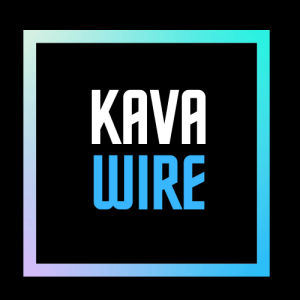Scott Stuart: The Visionary Behind Kava Labs
Scott Stuart, the founder of Kava Labs, serves as the chief architect of the company’s product and marketing strategies. His expertise lies in developing high-value early-stage business models, where he has demonstrated success in crafting effective strategies and assembling teams to bring these initiatives to fruition. Before establishing Kava, Scott led a mobile advertising technology firm and distinguished himself as a top-ranked professional poker player on a global scale. He holds degrees in Mathematics and Economics from the University of Wisconsin, Madison.
The Need for Decentralized AI
The necessity for decentralized AI arises from its fundamental incompatibility with the ideals of an open internet when it is centralized. Centralized AI systems are typically controlled by a limited number of corporations and trained on proprietary data within opaque infrastructures. This lack of transparency raises concerns about how these models are developed, their behavior, and whether they are influenced by corporate interests or political agendas. Such conditions render them unsuitable as foundational elements for future applications. In contrast, decentralized AI operates on an open-source basis, is owned by the community, prioritizes user privacy, and is governed by its users rather than by corporate platforms. For AI to truly become an integral part of our digital landscape, it must be accountable.
Kava AI’s Unique Approach to Decentralization
Kava AI differentiates itself from other projects claiming to be “decentralized” by avoiding reliance on centralized APIs, proprietary models, or cloud infrastructure that is vulnerable to censorship or surveillance. Built specifically for the Web3 environment, Kava AI is blockchain-native. It utilizes decentralized networks like Akash for inference, supports open-weight models, and allows smart contracts to be executed directly from natural language inputs. Crucially, Kava AI operates under a decentralized autonomous organization (DAO) model, ensuring transparency across all levels—encompassing code, models, infrastructure, and development plans.
Current Utilization of Kava AI
At present, Kava AI is being utilized by users for the early-stage automation of basic on-chain activities. This includes tasks such as bridging assets, checking wallet balances, and conducting straightforward token transfers through natural language commands. While more sophisticated strategy execution is planned for later in the year, the primary focus is on streamlining everyday interactions within blockchain environments. The system is designed to connect directly with wallets and smart contracts, enabling users to perform actions with just a single request, thus laying the foundation for future advancements.
The Significance of Reaching 100,000 Users
Reaching the milestone of 100,000 users underscores the demand for practical tools rather than mere speculative or hype-driven offerings. Users are looking for reliable, efficient, and private solutions, indicating a desire to progress beyond novelty applications like ChatGPT and into genuine utility. Achieving this level of user engagement early on—without the incentive of tokens—highlights a substantial interest in decentralized intelligence.
The Impact of AI on DeFi
Currently, decentralized finance (DeFi) is powerful yet often inaccessible, primarily catering to those who comprehend its tools, risks, and workflows. However, AI is set to transform this landscape. Soon, users will be able to generate yields without needing to grasp complex concepts like liquidity pools; they will simply instruct an AI, “Find me the best return,” and the AI will conduct real-time transactions across various chains, protocols, and contracts. This advancement is expected to simplify the learning process and broaden the user base significantly.
Common Misunderstandings Surrounding Decentralized AI
A prevalent misconception is that decentralized AI is merely an optional enhancement or limited to open models. In truth, decentralized AI is essential for ensuring that the technology aligns with user interests over the long term. Centralized AI will inevitably reflect the priorities of those who control it—whether they are corporate executives, government entities, or driven by profit motives—making it less beneficial for individual users. Decentralized AI aims to shift this power dynamic.
Industries Embracing Kava AI
Kava AI has begun to gain traction among various sectors, particularly among crypto traders, DAO treasurers, NFT projects, and independent developers who are creating tools on its platform. However, the potential for Kava AI extends far beyond these early adopters, with opportunities across finance, gaming, and governance. Any industry that relies on real-time decision-making, trustless execution, and privacy stands to gain from this technology.
The Importance of Open Governance in AI
Open governance is crucial for AI because intelligence is inherently powerful. The entity that determines how an AI learns, adapts, and makes decisions ultimately controls the resulting outcomes. By establishing open governance, the values of the community can be integrated into the system’s development, ensuring that it is not just a matter of transparency but also a means to prevent exploitation and oversight.
The Future Direction of AI
The vision for AI extends beyond chatbots and applications; it encompasses autonomous systems that operate on behalf of users around the clock throughout the Web3 ecosystem. The ultimate goal is to create invisible AI that manages complexity, optimizes results, and interacts seamlessly with smart contracts, all without the user’s active involvement. When executed correctly, the effects of this technology will be trustworthy, verifiable, and designed to empower users autonomously.

